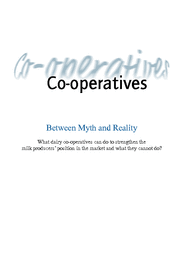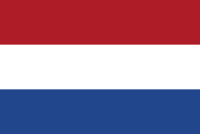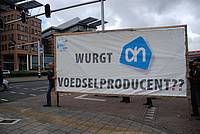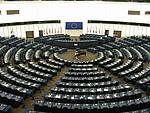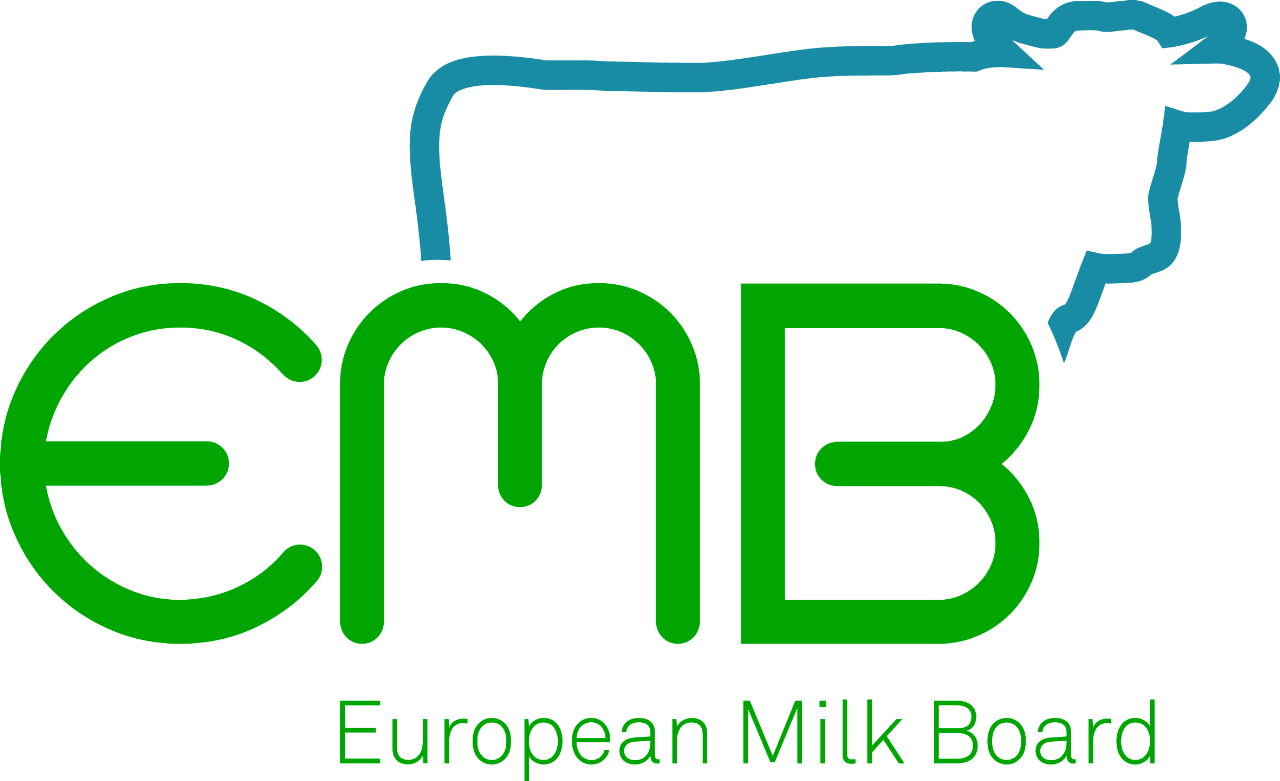EMB Newsletter October 2012
Newsletter as PDF
Contact
European Milk Board
Bahnhofstr. 31
D-59065 Hamm
Phone: 0049/2381/4360495
Fax: 0049/2381/4361153
E-Mail: office@europeanmilkboard.org
Website: http://www.europeanmilkboard.org
Newsletter as PDF
Contact
EMB - European Milk Board asbl
Rue de la Loi 155
B-1040 Bruxelles
Phone: +32 - 2808 - 1935
Fax: +32 - 2808 - 8265
Dear Dairy Farmers and Interested Parties,
Unfortunately the situation in the milk markets in Europe has not improved yet. For many fellow dairy farmers it is as tense as ever – if not threatening their livelihoods. Yet there are increasing signs that give us hope for a political solution. To stress the importance of this we are addressing you in this foreword to the EMB Newsletter collectively as the EMB Board.
For instance, after Poland now Portugal and Spain have called for regulation of the milk market in the Council of Ministers in Brussels. On top of that, Michel Dantin, the Reporter on the reform of the Agricultural Market Organisation to the European Parliament, said recently at a conference that there had been three votes in Brussels in the last three years on the milk quota and each time the majority in favour of abolishing quotas was significantly smaller. This shows that our positions are gaining more and more support, and should encourage us.
It is quite apt that in Canada the system for regulating the milk market has worked perfectly for a long time now and the milk producers are fighting for the system to be maintained (see the article in this issue of the EMB Newsletter). This also underpins our struggle and the demand for a similar system in Europe.
As the development is gaining momentum we must not relent in any way. So in the run-up to the vote in the European Parliament’s Agriculture Committee on the organisation of the agricultural market we call on you to join us at a big demonstration in Brussels in mid-November. Pencil this in your diary now and encourage farmers in your country to take part in this campaign of action. It is vital that we turn up in large numbers in Brussels this time to lend our support to those MEPs who are on our side. We are counting on your active support!
The EMB Board
Defend our mechanisms for managing supply!
In this article the President of the Quebec Federation of Milk Producers, Bruno Letendre, emphatically advocates maintaining and further developing the statutory supply management in the Canadian milk market.
The dairy sector in Quebec is well known for its quality products and the part it plays in the sustainable economic development of the Quebec region. The dairy industry plays a key role in this, contributing 5.1 billion Canadian dollars to the gross domestic product of the federal state. More than 81,000 jobs in Quebec depend directly or indirectly on the dairy sector. These jobs are spread throughout Quebec and have a palpable influence on the ability of the rural communities to survive. The dairy sector provides a steady income on which the various regions can rely.
New brochure makes a few things clear about co-operatives
Just as in the last issue of the EMB Newsletter and the one before last, we are reproducing in this issue an excerpt from the EMB’s recently published brochure on co-operatives in the dairy sector. If you are interested you can obtain the complete version of the brochure on co-operatives in German, English and French from the EMB.
The Netherlands: Brief history of co-operatives in the dairy sector since 1890 and their significance for farmers’ incomes
DR. NIEK KONING
Within the Dutch dairy industry, co-operatives have a dominant position. They process around 90 percent of all milk produced in the Netherlands. In fact, the lion’s share is processed by one co-operative giant – Friesland-Campina – a modern company with a strong position in international markets. This situation should make the Netherlands the case par excellence to prove that co-operatives can compensate the weak market position of farmers in a liberalised market. Unfortunately, the claim fails to pass the test of reality.
The financial plight of Dutch milk producers
The Nederlandse Melkveehouders Vakbond (NMV), one of the two EMB member organisations in the Netherlands, is very worried about the financial situation of the Dutch milk producers. The combination of a plummeting milk price and the palpable increase in the costs of diesel, roughage and concentrated feed is causing liquidity problems for a rapidly growing number of milk producers.
The NMV is receiving more and more complaints from milk producers who have reached their credit limit and are having trouble paying their bills. The mixed feed industry also confirms that farmers are paying their bills later and later. The worst thing is when the ever dwindling profit margin coincides with outstanding repayments for work the previous year and expenditure on grass silage. The money quickly runs out then.
Dutch supermarkets cut prices paid to suppliers
The Dutch supermarket chains Albert Heijn and Jumbo wrote to their suppliers in mid-September informing them that they had unilaterally decided to axe prices by 2% on existing contracts. Their reasoning was that the suppliers had benefited from the supermarket chains’ expansion policy and so the contracts had to be amended accordingly.
This practice makes it patently obvious that the food trade has no basic rules for ensuring fair business relations in the sector. In reply, food suppliers told the media that measures like unilaterally slashing contractually agreed payments or extending terms of payment were the norm.
France: Hundreds of dairy farmers show solidarity with accused fellow farmers
On 4 October 2012 there was a huge demonstration by farmers in St. Etienne, southern France. The reason for the demo was a court case against nine dairy farmers charged with property damage in connection with the milk strike in 2009. During the strike the regional Chamber of Agriculture was occupied by incensed milk producers and milk was dumped, because the chamber had opposed the dairy farmers’ demands. After the direct action the then Chairman of the Chamber arbitrarily informed the police on nine predominantly young farmers, who are now on trial.
The majority in favour of abolishing quotas is dwindling
Michel Dantin, the French MEP and rapporteur on the current review of the European agricultural market organisation, made an extremely interesting statement at a conference in the European Parliament in Brussels on 19 September on the abolition of milk quotas in the EU.
EMB Calendar
Please find below some of the most important events in October 2012:
2.-4.10.: Meetings with MEPs in Brussels
17.10.: Presentation of the study on co-operatives in the EU in Brussels
23.10.: Meeting of the EMB-Board in Croatia
23.-25.10.: EMB-General Assembly in Croatia
Full Texts
Defend our mechanisms for managing supply!

In this article the President of the Quebec Federation of Milk Producers, Bruno Letendre, emphatically advocates maintaining and further developing the statutory supply management in the Canadian milk market.
The dairy sector in Quebec is well known for its quality products and the part it plays in the sustainable economic development of the Quebec region. The dairy industry plays a key role in this, contributing 5.1 billion Canadian dollars to the gross domestic product of the federal state. More than 81,000 jobs in Quebec depend directly or indirectly on the dairy sector. These jobs are spread throughout Quebec and have a palpable influence on the ability of the rural communities to survive. The dairy sector provides a steady income on which the various regions can rely.
Firstly, this success is undoubtedly due to the quality of the milk and the constant efforts to gear our product to consumer needs. Secondly, though, the fact that our sector is doing well is because the Act governing the marketing of agricultural, fish and food products provides us with the requisite regulatory instruments.
As individuals we have no power in negotiations with the buyers. Without statutory provisions on pooling supply it is impossible for us to achieve a fair market share. This imbalance led to the milk crisis in Europe and the United States in 2008 and 2009, and is currently causing similarly bad market situations in England, France and Belgium.
The legal framework applied to counter this has worked out most successfully in practice here in Quebec. It has enabled the dairy sector to develop in a way that all parties concerned benefit, be they the producers or processors, organised privately or as co-operatives. Thus the Act governing the marketing of agricultural, fish and food products is of crucial importance to efficiency and agricultural progress in the Quebec dairy sector. The current size of and diversity in the dairy sector speaks for itself. It is imperative that the Act be kept in its present form.
What we expect from the government of Quebec and all our parliamentarians is that they are committed to Canada making no more concessions to Europe with regard to milk markets and that this is also their position in all other bilateral negotiations within the WTO. We are counting on receiving the same support from the politicians as we have had so far with the supply management.
A genuine market balance between buyers and sellers, statutory supply management and the agreements applying to this between the Canadian provinces are of fundamental importance to our sector and must be maintained at all costs. That is what we must remind the politicians of.
Bruno Letendre (President of the Fédération des producteurs de lait du Québec)

